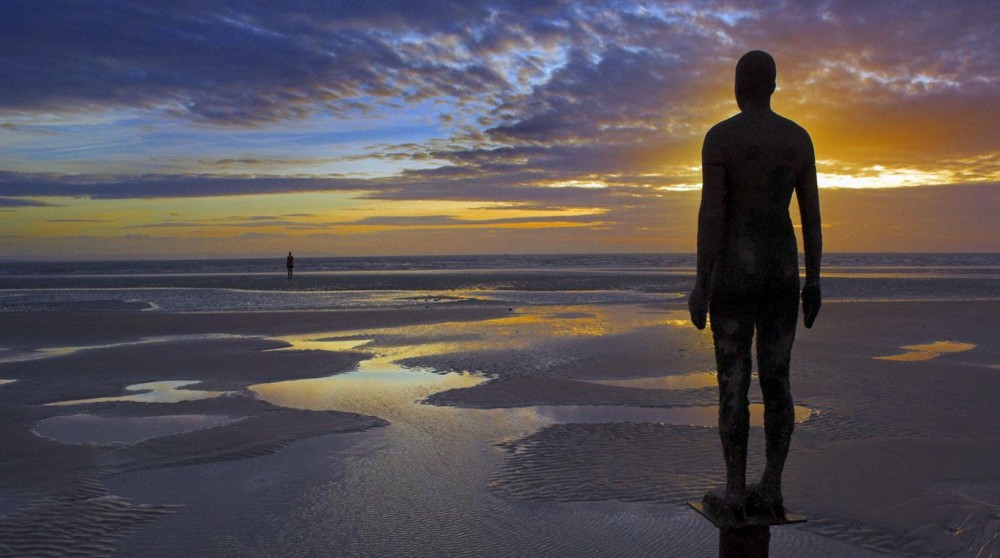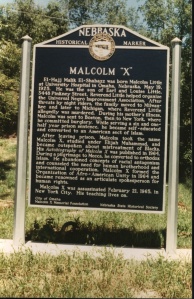In the early 1950s, President Eisenhower needed to nominate a new Chief Justice. His attention ultimately centered on the three-term governor of California, Earl Warren. Warren, the more conservative Eisenhower felt, on paper, like a political moderate, and was enthused the two would relate.
However, as David Halberstam put it in one of my favorite books, The Fifties: “If Dwight Eisenhower had decided from Earl Warren’s record that the two of them shared similar attitudes and values, then he was wrong. They could not have been more different. They might have come from similar backgrounds, but Eisenhower had long ago removed himself from the complexities of contemporary American life by going off to the military; there he was largely isolated from the changes in the society.”
I loved this insight when I first read it. One of my closest friends for almost thirty years has been a Marine now for about twenty-five of them. And reading that paragraph instantly reminded me of the many rifts between civilians and many of his military friends and peers when we often hung out.
I can’t speak for them but I nor my friend were ever easily accepting of such rifts. Marines can adapt a very clique-ish, walk-on-water attitude when out and about among civilians (and not to mention, among other branches in the military). Such instances paid towards myself, I would quietly resent how all they pretty much had to do was sign their names on a dotted line and obtain an instant career — along with obtain future benefits like free travel and a free college education.
As an artist, I have always felt among the lowest scrapping along the opportunity totem-pole, with an ego just as big but an even bigger — that is, recognizable — inferiority complex. So, in this sense, I know what it is like to feel shunned. But, unlike regular folk, the common fear/point of view military and law enforcement people are trained for and more accustomed to is the enormous, practical responsibility of having to think in terms of enforcing general safety, every day.
However, it has become very easy to sense how this social disconnect has now drastically widened as police forces in unheard-of small towns and cities across America have become inexplicably militarized — courtesy of hand-me-down equipment like tanks and grenade-launchers, from our most recent wars. Having been at war for now over thirteen years, we as a nation have certainly become very accustomed to it. And these weapons have certainly handed down a tangible, offensive sense of amoral over-dramatization — and, overcompensated imagination — to tellingly drama-free areas. I mean, there are reasons, say, here in upstate New York one can only see ‘Repeal the SAFE Act’ signs out on cricket-laden suburban and rural lawns — largely populated by whites — and only ‘Stop the violence’ signs posted around poor, inner-city neighborhoods — largely populated by minorities.
Meanwhile, and by absolutely no means to underscore, the real ‘thieves’ — the lobbying powers anchoring the revenue of guns, et al — continue to go about business as usual.
In the immediate aftermath of his death Eric Garner’s widow and daughter both expressed believing race had nothing to do with it. A very wise declaration — as wisdom is yet again stubbornly lacking on both sides of this matter. For one, saying this of course downplays any a potential riot that could spring at any time, any place, and under any circumstance, under their family name. And on the flip-side, we can all see how difficult it can be to reasonably rule out race as a factor, in the abstract, upon gathering the facts from one such incident to the next.
We’ve all seen the video and read the key components about the Eric Garner incident:
– Why go to such great lengths to arrest a man for selling tax-free cigarettes?
– The local police had a history of verbally harassing Garner, over this, according to both what he kept saying in the video and in later accounts from his family.
– The two officers questioning him initially appeared as calm as can be. It was in broad daylight, and there was no chase to get their adrenaline revved up.
And so when they finally motioned to make an arrest Garner backed up a little, held his hands back, and up, insisting, “Please, do not touch me.” Then the one officer from behind slipped a choke-hold on him. (Now, if one sustains an object while applying some type of force this can be referred to as a ‘hold’. And if such a hold happens to be an arm wrapped around a person’s throat, then this can literally be referred to as a ‘choke-hold’ — which is illegal in the NYPD.)
At no point was Garner physically resisting arrest, even after he was pulled face-down, head pinned against the pavement, repeatedly heard pleading, “I can’t breathe”, while several officers now jumped in, and at some point as a result of all this, dying.
This is a very clear case of police-misconduct.
Trayvon Martin: in one particular defense of George Zimmerman’s character, he was among the few protesting a police beating of a black homeless man, Sherman Ware, in 2010. By all accounts, it seems reasonable to assess that Mr. Zimmerman simply should not have created his own ‘Ground’ […sigh] by getting out of his out of his car, as a result of, well, manifested boredom.
Michael Brown was an upsetting result of differing eyewitness accounts. But, later, in nearby Berkeley, Missouri, was a clear case of an actual armed [black] man having pulled his gun on a [white] police officer and the officer justifiably engaging in self-defense. And in between, we have this interesting, recent post by a retired St. Louis police officer.
Tamir Rice is an extraordinary case of incompetence, immaturity, poor training and conditioning. I mean, of course with complete respect to Tamir’s family, but this fool of an officer must have gone to the Reno 911 academy.
Akai Gurley is yet another clear case of lack of common sense. If officers — in this case, an Asian-American officer — are ordered to patrol a housing project of poor residents, very late at night, as a result of some recent homicides, but there is no lighting in the building, then YOU CANNOT PATROL WHAT YOU CANNOT SEE!
Jerome Reid: despite being very loudly, clearly, and repeatedly warned not to move, with a gun pointed at his face, he started to step out of his car with his hands raised about shoulder level. The officers then opened fire, killing him. Reid and the man driving the car were black. The Bridgeton officer who spotted the gun, Braheme Days, is black; his partner, white. Reid had spent about 13 years in prison for shooting at three state troopers when he was a teenager, and officer Days knew who he was. Days was among the arresting officers last year when Reid was charged with several crimes, including drug possession and obstruction. Both officers have been placed on leave while prosecutors investigate.
Since the Rodney King travesty, in spite of the LAPD’s decision to undergo sensitivity training as they continue to largely, successfully conduct community outreach, there was the recent case of a California officer pummeling a homeless, black great-grandmother alongside a highway. This did end up with a $1.5 million settlement in her favor.
There are countless scripts, even in our recent history. Take the Central Park Five case from the not-too-long-ago 1980s: five black teens with five different, video-recorded confessions, charged with the rape of a white, female jogger, one night, in Central Park. With each different video-confession presented in front of the jury, each of the five were still convicted of the same crime. Or, personally, the stunning dozen or so instances my one friend rattled off in one conversation of being pulled over for DWB. I never knew it was illegal, for one, to have something like an air-freshener hang from your rearview-mirror. I suppose, because I never ‘fit the description’. The perennially high percentage of mistrust minorities have towards law enforcement in cities and towns throughout the country reflects the high percentage who have a decreased confidence in our legal system.
In Malcolm Gladwell’s book, blink: The Power of Thinking Without Thinking, there is a chapter towards the end entitled, “Seven Seconds in the Bronx”. This chapter I strongly urge reading for the sake of here conversation. It extensively deconstructs — and proposes ideas and solutions, analyzed and practiced, among some local police forces — details surrounding the Amadou Diallo shooting.
The four officers in this famous case made a string of instinctively shallow and profoundly regrettable decisions: no real second-guessing of the subtly influential elements surrounding them, and very little precaution taken to better ensure self-defense.
Towards the end of the chapter is a quote by a psychologist, Keith Payne, that pretty well sums up everything here: “When we make a split-second decision we are really vulnerable to being guided by our stereotypes and prejudices, even ones we may not necessarily endorse or believe [my italics].” The word ‘prejudice’ of course never automatically refers to racial-prejudice, but you can see how race can still be considered a factor, both directly and indirectly, in every case involving a law enforcement official shooting a usually poor, black civilian.
We are all very busy people, continuing to go about our daily lives business as usual. And this does not forgive how easily sensationalized we can be from being more generally bored than we would care to admit. And, so long as we are here, journalistic leads ought to exclude mentioning race in their initial reporting of these instances until more of the facts are gathered.
One of the first Supreme Court cases Chief Justice Warren presided over was Brown v. Board of Education. He sought amongst his associates a clear, unanimous 9-0 decision (unheard of in today’s Court) in favor of desegregation as a means to signal at least a legal balance between liberals and conservatives alike. Naturally, a more conservative justice wanted to write his own concurring opinion and another continued to hold out at 8-1. But, by May of 1954, the unanimous decision was reached.
This decision was long deliberated over, as a result of being very long overdue. For later in life, a few years since retired now, Warren would be brought to tears when asked during an interview about his decision as California governor to intern 110,000 Japanese-American citizens living in the state, during WWII. As a strong advocate throughout his career for young Americans to have a decent education, and to be treated with equity and respect, fear and misunderstanding obviously overtook reason at this point in time. Oh, the inestimable power of conformity, and the difficulty — if ever — to think for oneself in the face of it.

